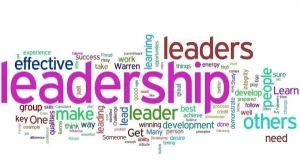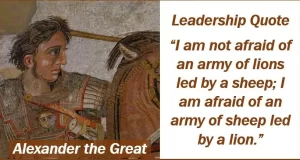The time period leadership refers back to the action of leading a company, organization, navy unit, or group of humans. It is likewise the position or state of being a leader. When we speak approximately, for instance, a ‘alternate of leadership,’ we suggest a alternate of folks that lead an corporation, business, country, etc.
When we hear the time period ‘leadership,’ we might imagine of a head of state, CEO, or explorer heading a set via the jungle. CEO stands for Chief Executive Officer.
BusinessDictionary.com has the following definitions of the term:
“1. The those who are the leaders in an organization, seemed collectively. 2. The pastime of main a set of humans or an organization or the capacity to do this.”
According to Wikipedia, leadership is both a practical skill and a research area which contains a person’s, country’s, or organization’s capacity to steer or manual others.
The time period ‘leadership’ might also additionally suggest various things to one of a kind humans, countries, components of the sector, companies, and cultures.

Leadership in business
In the sector of business, leadership offers companies and employees with direction. Stakeholders, specifically employees, want to recognize wherein their corporation is heading and the way it plans to get there, i.e., what its desires and goals are.
What are goals and objectives?
Your aim is wherein you need your corporation to be in 5 or ten years’ time. Your goal is how you propose to get there. If we use an analogy, including traveling, your aim is your destination, whilst your goal is an outline of the journey (the route).
If you assert which you need your company to emerge as the marketplace chief for your country, this is your aim. Your goals is probably to accumulate one in every of your smaller competitors, market it in a sure way, appoint extra scientists, teach a few personnel individuals in particular skills, etc.
Investopedia.com says the following regarding the meaning of the term:
“Leadership is likewise approximately putting a tremendous instance for personnel to follow, via way of means of being enthusiastic about the work, being stimulated to research new things, and supporting out as wanted in each character and group activities.”

What sets leaders apart?
Leaders are inclined to take duty for his or her selections, specifically in the event that they ultimately have an effect on humans’s welfare.
Military generals, parents, heads of states, and CEOs all have one issue in common. They make selections that have an effect on now no longer most effective themselves, however additionally others.
Such questions as: “Should we invade now?” or “Where have to I send my daughter to school?” have an effect on different individuals. When a CEO comes to a decision to lessen the staff of a massive multinational, that selection impacts the lives of thousands of humans plus their families.
Some selections might also additionally have an effect on simply one or humans, whilst different might also additionally decide what occurs to an entire nation.
Leadership and responsibility aversion
If you’re reluctant to make selections that could decide the destiny of others, you’re not likely to revel in leadership. If you refuse to make such selections, you in all likelihood lack strong leadership skills.
Good and powerful leaders are inclined to take duty, i.e., to be held accountable, for the decisions they make.
Greatest Leaders
According to Ranker.com, these were the greatest leaders of all time:
- Alexander the Great
- Julius Caesar
- Augustus Caesar
- Mahatma Gandhi
- Winston Chuchill
- Martin Luther King Jr.
- Genghis Khan

